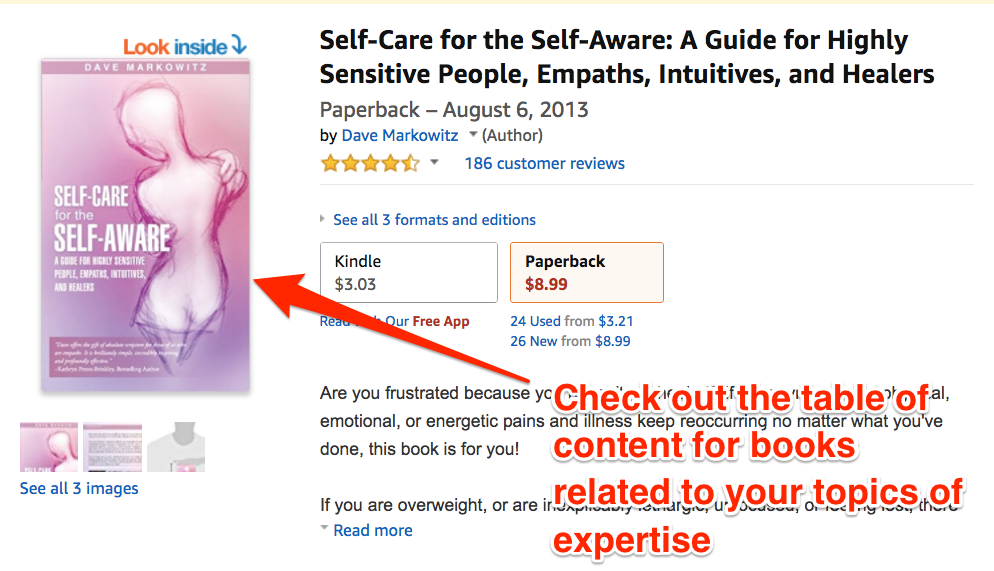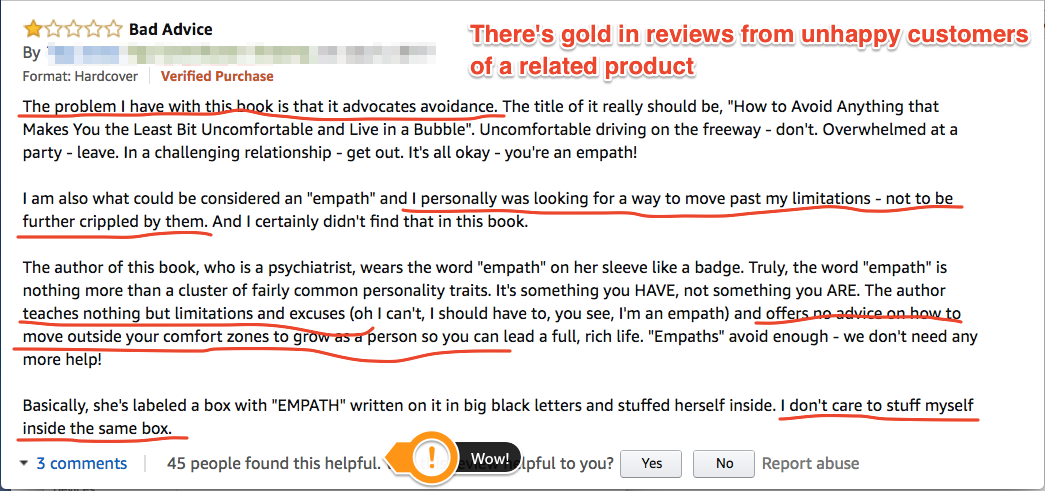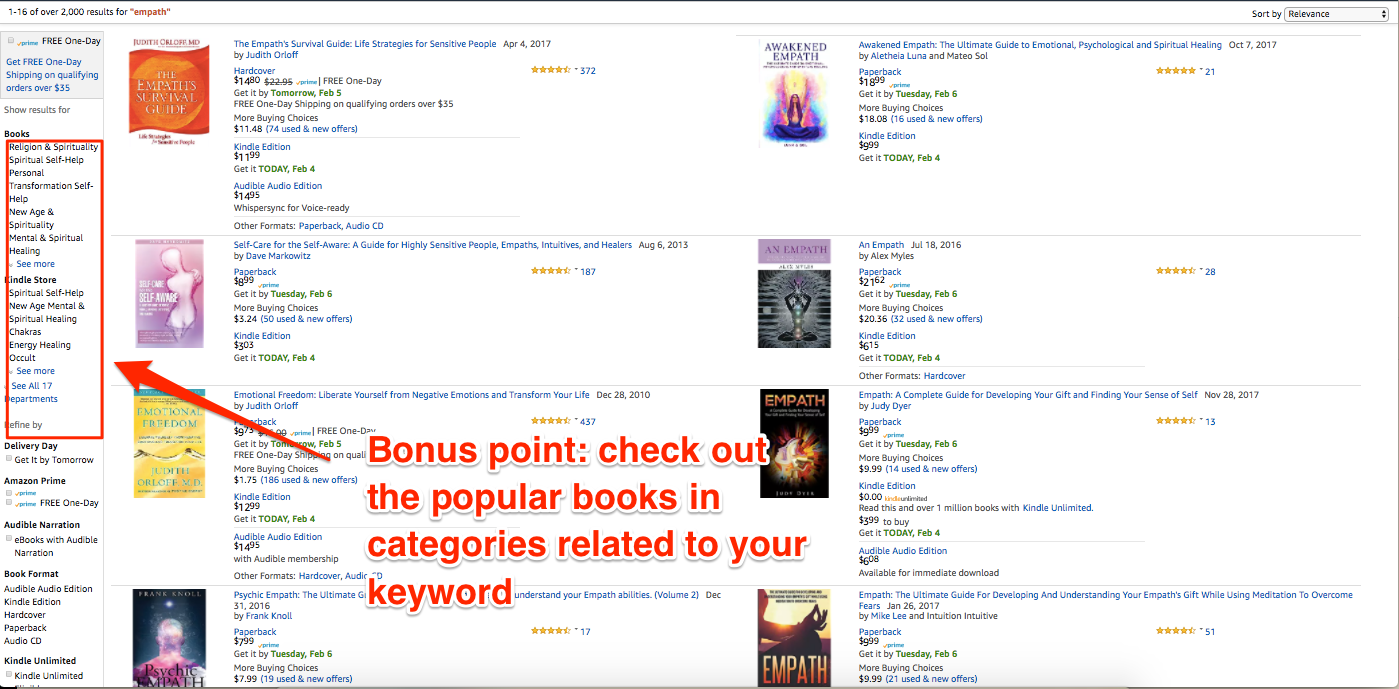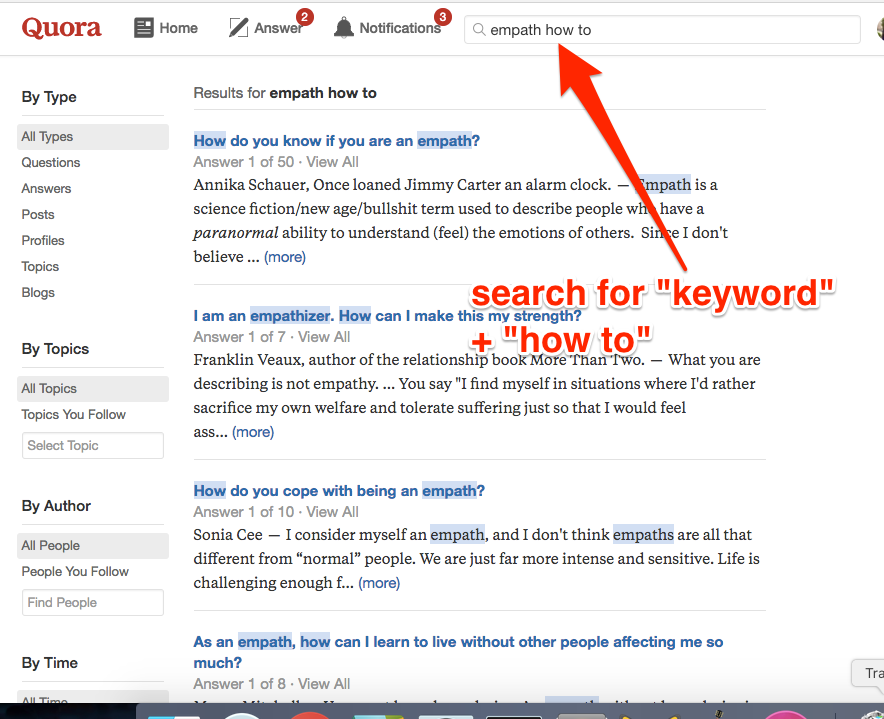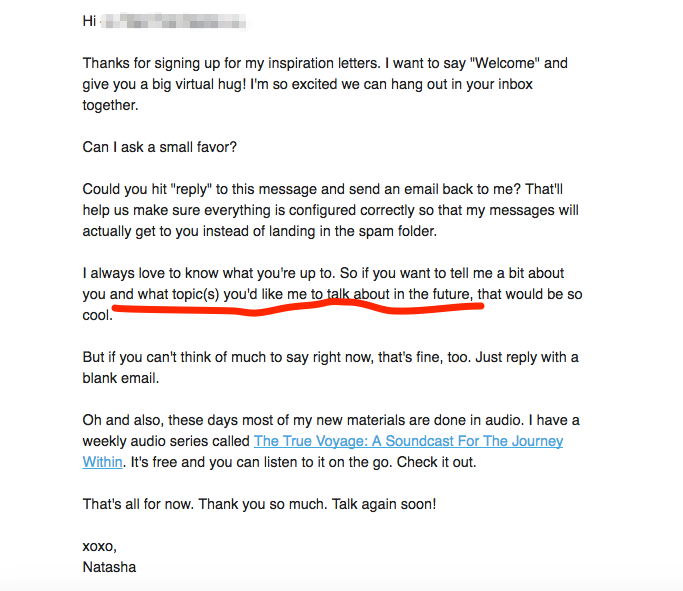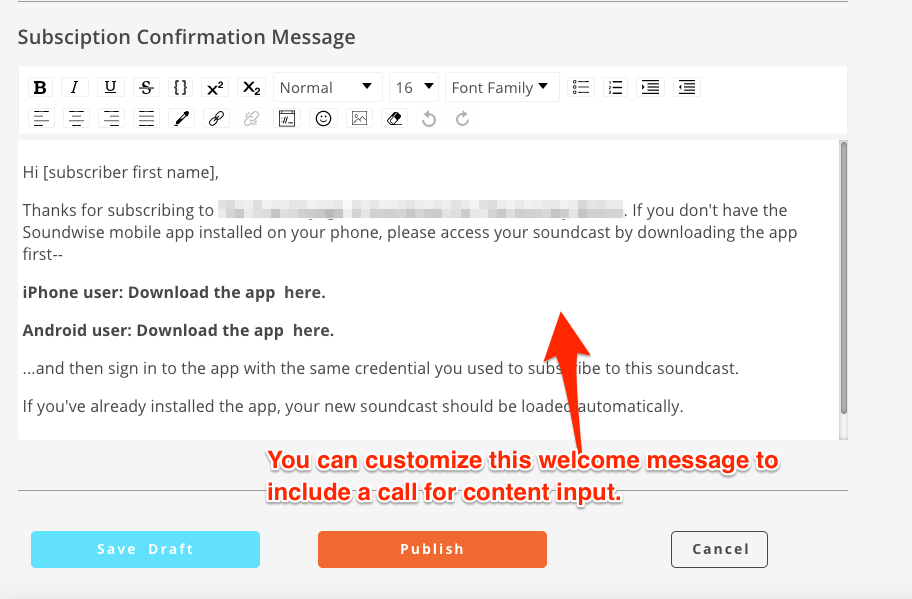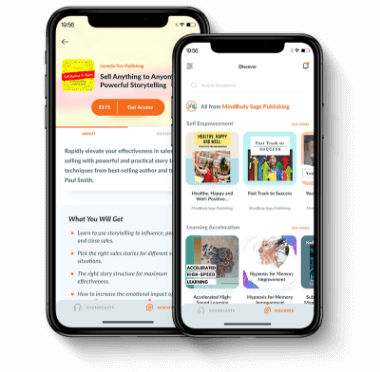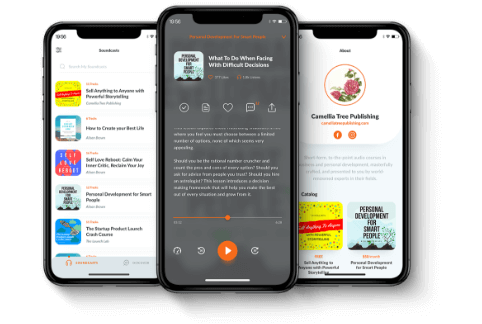You try to create an audio course. But you’re not sure what individual lessons should go in there. You have a weekly updated podcast. But you’re running out of ideas as to what to talk about in the next episode. Sound familiar?
No matter what you’re teaching, you need an abundance of content topics. Not just any topics. But topics that SELL, i.e. they need to be things your audience want to listen to, as well as showcasing your expertise.
This is not easy for most people. We regularly suffer from what I call I-don’t-know-what-I-know syndrome. If you’re an expert in something, what you know may feel so natural to you that they seem to be barely worth talking about. On the other hand, topics you find exciting may not be all that interesting to your audience. And after all, you’re not creating a course for self-expression. You’re here to teach people stuff that should be useful to them.
So what should you do?
I’m going to tell you about a most effective approach to reliably come up with great content ideas that hit the mark—fast. But first of all, here are some ways to NOT have good content ideas:
• Not doing any research about your audience.
• Picking ideas based on what you think are important or interesting.
• Sitting at your desk and brainstorming things out of thin air.
• Hoping to be hit by lightening and suddenly have all the ideas.
• Having had the greatest inspiration while doing dishes one day, now hoping it will happen again.
I’m not saying these approaches don’t work. If doing the dishes help with creativity, keep doing them. But these approaches are neither reliable nor fast. And the biggest problem with them? They are not focused on what your audience wants, which is an absolute must if you want to monetize your knowledge.
If you want to create content that sell, you need to target the sweet overlap between what you’re an expert in and what your audience needs. Fortunately, the former you already know. The latter you can easily find out by doing some homework.
The easiest way to discover what your potential audience needs is to look at what they’ve already spent money on and what problems they are asking a solution for.
With that goal in mind, here is a simple process to come up with many sellable content ideas for your audio course or podcast.
I suggest you set aside half an hour to do this process, try to come up with at least 50 content ideas, and time yourself while doing this. Setting the time limit is important. And I’ll tell you why in a moment.
Step 1.
Write down 3 to 5 key words or key phrases about your field of expertise, i.e. the board focus of your audio course. For example, I mentor people who are empaths and energetically sensitive. So my key phrases can be “empath”, “highly sensitive person”, “emotional intelligence”, “healthy boundary”, etc.
Step 2.
We’re going to do some internet research about these words and phrases. And here are the places we are going to visit, in descending order of effectiveness.
Amazon.com
My favorite research tool for content ideas is Amazon. For two reasons.
1. Although audio/video content is all the hype these days, most of the knowledge in any field are still contained in written words— lots of them are books.
2. Every book you find on Amazon, someone has paid for it with real dollars. If (some) people find a content topic useful enough that they’re willing to spend financial resources on it, it’s a good indication of at least some market demand for the topic.
You’re going to look for your keywords using Amazon search and see what books come up. For example, when I search for “empath” on Amazon, I get 2000 results.
Click on some of the book titles that came up. On the product page, most books have a “Look inside” option. Click on that and look for the table of content. The chapter list in the table of content can give you lots of ideas about the topics this book covers.
Similar topics can be developed into lessons and episodes for your podcast. So as you look through the tables of content of your search results, jot down ideas/topics you can use in your own materials.
Mind you, I’m not asking you to read the actual content of the book, but only the chapter list for topic inspirations. You don’t want to copy other people’s materials and you don’t want your own creativity to be polluted. For that purpose, it’s best not to read other people’s content before you create your own.
If you’re worried about repeating the same content already out there, don’t. It’s likely that you may have a totally different perspective on the same topic. And even if your view is similar, your material will likely offer other original value-added when it’s totally coming from you.
Next, I want you to look through the customer reviews for the book. This can be even more useful than reading the table of content. Because in many cases the reviewers will tell you which topics covered by the book are the most useful to them. A lot of times the reviewers will also tell you what additional topics the book didn’t cover that they wish were there.
This is especially true for negative reviews, which are a gold mine of excellent content ideas. Because every negative review from a buyer usually tells you two things:
1. This is a topic important enough for someone to spend money on.
2. But they didn’t get what they wanted from this current offering.
In other words, there is a market demand that’s not being satisfied right now—room for you to offer something that fills the gap.
For example, here’s a negative review for one of the empath related books I found on Amazon. I got at least three content topic ideas from it. Can you spot them?
Depending on your particular field, it may also be useful to check out the popular books in the book categories related to the keyword you searched for. The bestselling list in each category tells you what’s trending in the vicinity of your area of expertise, and can give you additional content ideas.
Quora.com
Quora has become a very popular Q&A site in recent years for people to ask all kinds of questions and get crowdsourced answers. It’s not as valuable for us as Amazon because, again, nothing provides better indication about audience demand than those backed by real dollars. Still, it can offer you lots of content inspirations.
You can search for the same key words/phrases related to your area of expertise. Almost every result entry that comes up can be a candidate topic for a lesson in your audio course or an episode in your soundcast.
Additionally, you can also search for “your keyword” + “how to”. “How to” are two magic words that tells you the intention of the person asking the question— they are looking to learn something that’s applicable to their own lives. Here’re some of the results that came up when I searched for “empath how to”.
The third place you can look for content ideas is the good old Google. Though the results that come from googling your keywords can be all over the place.
That’s why I suggest you set a timer for 30 minutes to do this research. Quickly write down the content ideas you get from the search results and move on. Otherwise, it’s so easy to be dragged down that internet rabbit hole and re-emerge only three months later.
In addition, we’re only at the brainstorming stage. Forcing yourself to jot down ideas quickly and keep moving makes it less likely that you’d spend too much time analyzing each of them, which is counter-productive at this stage. You have plenty of time to analyze and evaluate each idea once you’ve got a large list of them.
When doing research on Google, make sure you also look at the related searches for your keywords. These can give you useful information about what else people are looking for related to your area of expertise.
Step 3.
Once you have your list of initial ideas, go through them one by one and eliminate those that are absolute no-gos.
Again, your goal is to come up with 50 content ideas for your soundcast in half an hour. Don’t think too much and do it quickly.
If you publish a weekly updated podcast, 50 topic ideas is a year’s worth of content. And if you’re creating audio courses and each course has, say, 15 lessons, 50 topic ideas will yield three courses and more. Not bad at all for half an hour’s work.
Bonuses
There are of course many other ways to collect content ideas besides looking for them on the internet. Here’re a couple more.
Survey your audience
You can email your soundcast listeners periodically asking for content input (if you're using Soundwise, your subscribers’ email addresses are automatically collected for you). Some useful questions to ask:
• What do you need the most help with in x area?
• What’s your biggest challenge in x area?
• What topic do you want me to cover in my next audio course?
You can even ask these questions as soon as someone signs up for your content. Because that’s usually when they’re the most excited and engaged about your materials. For example, I send an automatic email to everyone who signs up to my newsletter, in which I ask for content input, among other things. Here’s an example email:
Such emails not only give you direct feedback from your own audience, but also help increase audience engagement, which is always a good thing.
Soundwise sends a welcome email on your behalf to everyone who signs up for your audio series. And you can customize this email from your dashboard however you want, including adding a call for content ideas.
Collect content ideas at live events
If you run in-person training or workshops, pay attention to the questions your students ask you. They can all become new tracks in your soundcast.
In addition, conferences, summits, and other live events in your field are filled with speaker sessions on topics related to your expertise. A quick glance at the conference agenda/schedule can give you many content inspirations.
I prepared below a pdf worksheet to help you implement the 30-minute idea generation process. Set your timer. Start with listing your keywords. And write down the content inspirations you get from your online research in the worksheet. I challenge you to come up with at least 50!





